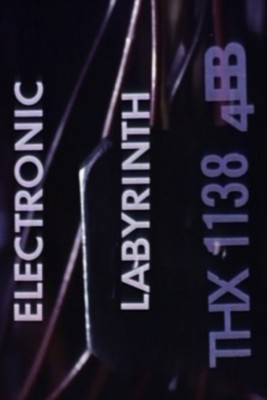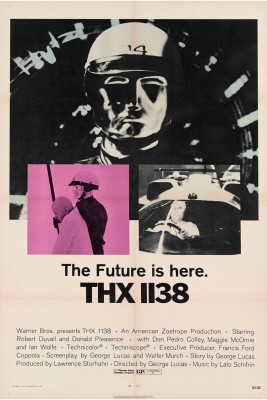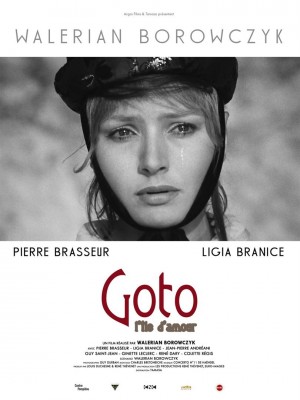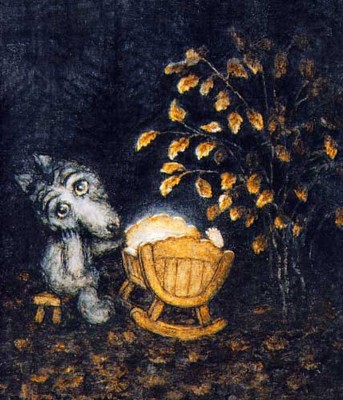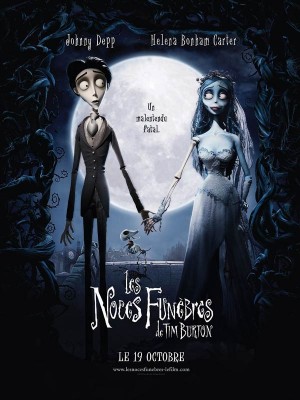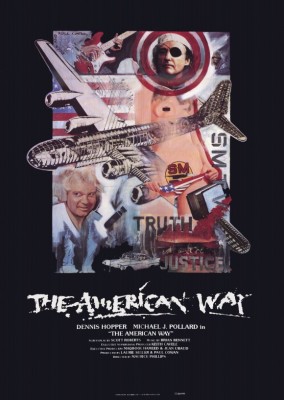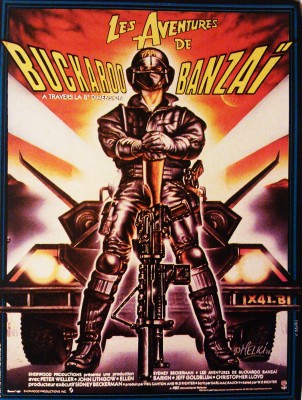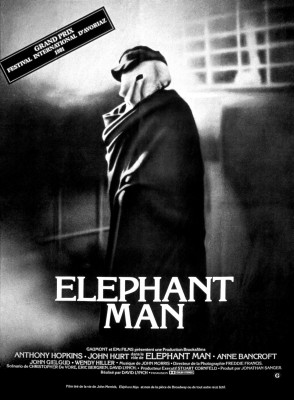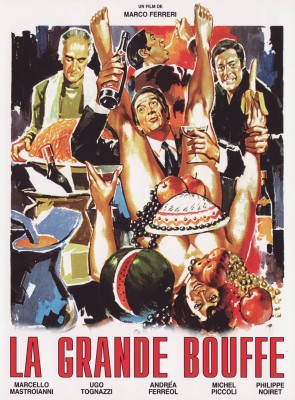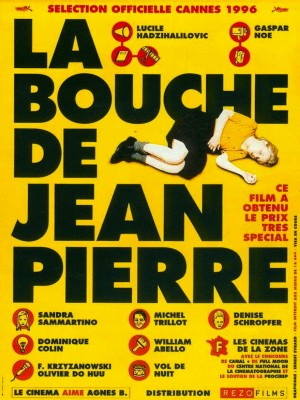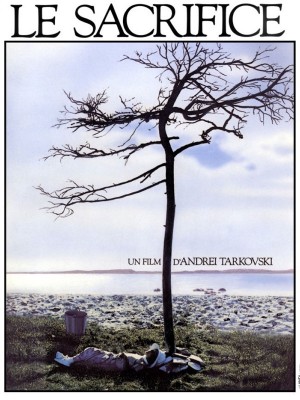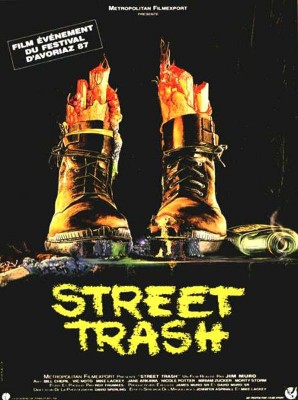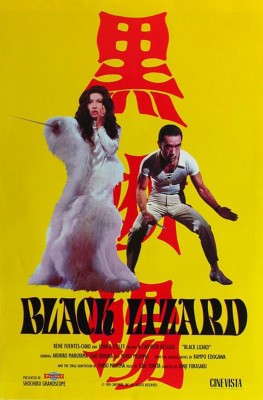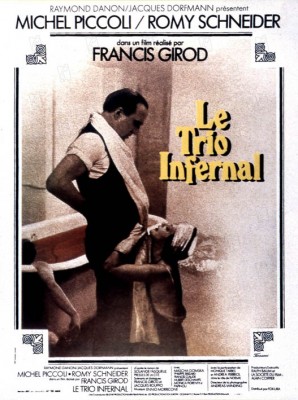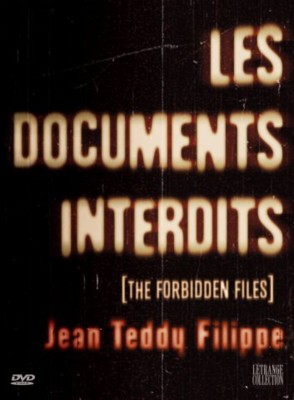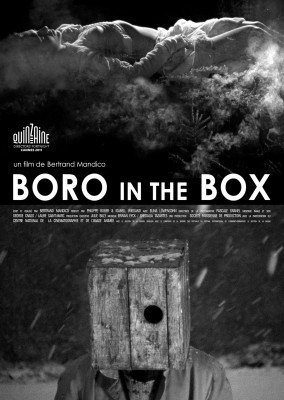Cartes blanches

Carte blanche Caro et Jeunet
Born respectively in 1953 and 1956, Jean-Pierre Jeunet and Marc Caro met in 1974 at the Annecy Animation Film Festival. Jeunet learned to handle a camera very early on, and Caro earned his chops by drawing for Metal Hurlant or Fluide Glacial, or as a member of the industrial rock band Parazite. Together they discovered their passion for animation, science fiction, and powerful imagery, and began a joyful collaboration. After short films like L’Évasion (The Escape), Le Manège (The Merry-go-round) featuring puppets sculpted by Marc Caro, then Pas de Repos pour Billy Brakko (No rest for Billy Brakko) adapted from a cartoon strip by the same Caro, they signed Le Bunker de la Dernière Rafale (The Bunker of the Last Gunshots ) in 1981, a steampunk post-nuclear fantasy.
It’s an instant success, and the film is shown for many years in Paris as an opening act for David Lynch’s Eraserhead. After a series of music videos (Zoolook for Jean-Michel Jarre) and other productions, they move on to feature films in 1991 with Delicatessen, or when Marcel Carné’s cinéma meets Chuck Jones, playfully shaking sleepy French cinema. Another instant smash and award collector, as the two compadres start work on La Cité des Enfants Perdus (The City of Lost Children), once again quoting Prevert and Cocteau’s dreamy wonderful worlds. Though they still collaborated on the fourth installment of Alien, Caro and Jeunet then went their own ways on different projects, all inhabited by the same formal expertise and the same poetic imagination. Their official reunion for an amazing exhibition at La Halle Saint Pierre in Paris, makes it the perfect opportunity to offer them this four handed carte blanche.

Carte blanche Jaume Balagueró
After Alicia (1994) and Dias sin luz (1995), his first two short films, Jaume Balagueró is immediately noticed with his much rewarded adaptation of Ramsey Campbell’s The Nameless. He at once becomes a figure to follow in Spanish genre cinema. After the documentary OT: la película, co-directed with Paco Plaza, he confirms his first foray with Darkness, a venomous game of shadow and light that establishes him as a standard bearer of the renewal of Spanish fantasy cinema with the likes of Nacho Cerdà, Juan Antonio Bayona, Nacho Vigalondo and a few others. In 2005 he directs Fragile, calling upon american actress Calista Flockhart, in a part far from her ingenuous Ally McBeal, and it becomes an instant masterpiece of the haunted house genre. After an episode in an anthology gathering the champions of Spanish fantasy films (Películas para no dormir), in 2007 Balagueró reunites with his accomplice Paco Plaza for [•REC], one of his most emblematic films, remarkable in its efficiency and editing, opening the way to “found footage” movies. Two years later he does it again for the sequel, then lets his partner take over for a third opus, while he tackles Malveillance, an awesome thriller under the influence of Polanski and Hitchcock. After the conclusion of his tetralogy with [•REC],4 Apocalypse, he’s preparing his comeback with Muse, a much anticipated noir horror film. A precious author who honors us with this naturally grisly anthology.

20 years of Mauvais Genres
For the last 20 years François Angelier and his guests have been shaking the radio waves by proudly addressing what the snotty intelligentsia often calls subculture. After a first passage in 1981, when he spoke of Cthulhu and the world of Lovecraft on France Culture, François Angelier returned more or less regularly as a reporter, like in 1988 for the program Culture Matin. A few years later he’s at the head of the summer program Bande à Part where he scrutinizes scorned literature, be it detective, fantasy, erotic, or comic book genres. After three years the program is terminated to come back with a new weekly formula in 1997 : This time Mauvais Genres is born. Each week a happy jumble of detective novels, comic books, rare Italian and Japanese movies and old TV shows, fist fucking and Terence Fisher, shared by passionate commentators like Jean-Pierre Dionnet, Christophe Bier, Jean-Baptiste Thoret, Jacques Baudou, Philippe Rouyer, Fausto Fasulo and many others.
The best standard bearers of our beloved culture, who never ceases to dig out the most alternative, dubious, deviant works for us, to draw a delicious map of our counter-culture. It’s with great pleasure that we greet these notorious radio agitators for three anthological evenings.
MAUVAIS GENRES: "I always found the expression “carte blanche” or “to give a carte blanche” to be a singular invitation to smear and soil. Too much white is blinding, altitude winds you, purity drives to madness and “signing a blank check” is always an incitement to ruin. White spots on a map, it’s a known fact, swallow and digest those who travel there. Staining appeases. And when Frédéric Temps, an old partner in deviancy, offered me a “carte blanche” for Mauvais Genres’ 20th anniversary, the immediate reflex was : let’s put a huge crimson stain on the screen. Let’s make a blotch, every cartographer’s dream. But with what? The Etrange Festival maniacs’ screens are already overfilled, encrusted with stupendous pies, noxious slashes, pierced by insane holes, whipped by fatal skidmarks. So what do we do, boss? Let yourself go, effendi, listen to your heart ! So we did, knock on the door, say the black sesame. Stop rewinding ! So here are three visual deviances, chosen by the “Mauvais Genres” crew, three tragic lanterns and social dissolvers, true make-beliefs and Orphic carnivals. Come packing, the place is deserted !"

20 years of Mauvais Genres: tragic lanterns
Jeudi 12 september 2017 at 19h15, Forum des Images, showroom 300.
Handcrafted cinema in black and white, mystically subversive oracular magic...
The Mauvais Genres anthology, plays with images and their meanings by reshaping them (Forbidden Documents), diverting them (The Device) or by recreating them (Boro in the Box). All proofs of the vitality of a certain kind of French cinema, far from the beaten tracks, close to the avant-garde, using found footage, mash-ups and phantasmagorical tales.
MAUVAIS GENRE: "Are those four, Jean-Teddy Philippe, Pacôme Thiellement, Thomas Bertay and Bertrand Mandico filmmakers ? Maybe not. More like lantern bearers, and shadow makers, spectre modelers, and chimera tamers. The four horsemen of the visual apocalypse.
The first, a secret master of found footage, whose Forbidden Documents, made of lost reels and misplaced footage (confessions of shipwreck survivors, holiday films from Hell, scouting for spectres, kolkhoz for supermen) exposes the art of make believe, creating anguish, and shows the impossible truth is maybe just a purely rhetorical affair, and veracity a question of dosage. Is deemed true what seems true. Period. But do we see what we believe we see ?
The second and third, conceivers of le Dispositif (The Device), an initiatic perambulation made of 52 epiphanies, or visual “intensities”, give us the filmic equivalent of a native American sweathouse, a spirit lodge : to cleanse the soul through an exercise of mental sudation, an intellectual degreasing that reconnects us with the power of the great initiates (from Ezra Pound to Zappa) to resonate with the vibrations of the Great Note. Between deconstruction and incantation.
Bertrand Mandico is a sacred fire-eater, a cutlass swallower, a distiller of ecstasy. Another Melies, his little orphic circus rambles from one place to another, projects visions of madness on a sap stained bridal sheet, ripped from an alchemist’s agony, a baroque prince’s euphoria. His tribute to Walerian Borowczyk, Boro in the Box, the box-headed man, shot less in black and white than composed in night and lime, is a mystery to be staged at asylum doors, a reliquary where opium seeds and sorcerers’ ashes are collected.
These four compose a poetic polyptic altarpiece, poetic cinema in one act."
Screening in the presence of the directors.
Screening presented by the Mauvais Genres team.
